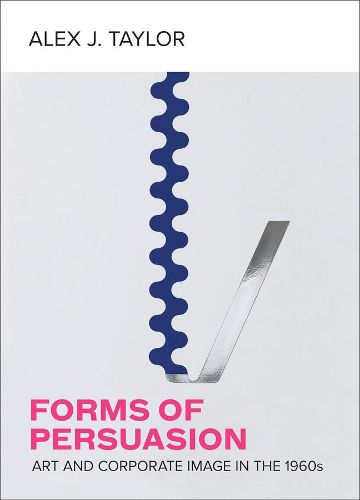Readings Newsletter
Become a Readings Member to make your shopping experience even easier.
Sign in or sign up for free!
You’re not far away from qualifying for FREE standard shipping within Australia
You’ve qualified for FREE standard shipping within Australia
The cart is loading…






In the 1960s, multinational corporations faced new image problems-and turned to the art world for some unexpected solutions.
The 1960s saw artists and multinational corporations exploring new ways to use art for commercial gain. Whereas many art historical accounts of this period privilege radical artistic practices that seem to oppose the dominant values of capitalism, Alex J. Taylor instead reveals an art world deeply immersed in the imperatives of big business.
From Andy Warhol’s work for packaged goods manufacturers to Richard Serra’s involvement with the steel industry, Taylor demonstrates how major artists of the period provided brands with forms of persuasion that bolstered corporate power, prestige, and profit. Drawing on extensive original research conducted in artist, gallery, and corporate archives, Taylor recovers a flourishing field of promotional initiatives that saw artists, advertising creatives, and executives working around the same tables. As museums continue to grapple with the ethical dilemmas posed by funding from oil companies, military suppliers, and drug manufacturers, Forms of Persuasion returns to these earlier relations between artists and multinational corporations to examine the complex aesthetic and ideological terms of their enduring entanglements.
$9.00 standard shipping within Australia
FREE standard shipping within Australia for orders over $100.00
Express & International shipping calculated at checkout
In the 1960s, multinational corporations faced new image problems-and turned to the art world for some unexpected solutions.
The 1960s saw artists and multinational corporations exploring new ways to use art for commercial gain. Whereas many art historical accounts of this period privilege radical artistic practices that seem to oppose the dominant values of capitalism, Alex J. Taylor instead reveals an art world deeply immersed in the imperatives of big business.
From Andy Warhol’s work for packaged goods manufacturers to Richard Serra’s involvement with the steel industry, Taylor demonstrates how major artists of the period provided brands with forms of persuasion that bolstered corporate power, prestige, and profit. Drawing on extensive original research conducted in artist, gallery, and corporate archives, Taylor recovers a flourishing field of promotional initiatives that saw artists, advertising creatives, and executives working around the same tables. As museums continue to grapple with the ethical dilemmas posed by funding from oil companies, military suppliers, and drug manufacturers, Forms of Persuasion returns to these earlier relations between artists and multinational corporations to examine the complex aesthetic and ideological terms of their enduring entanglements.